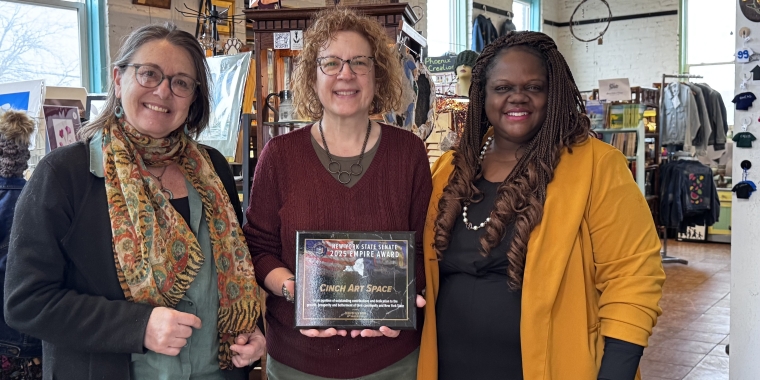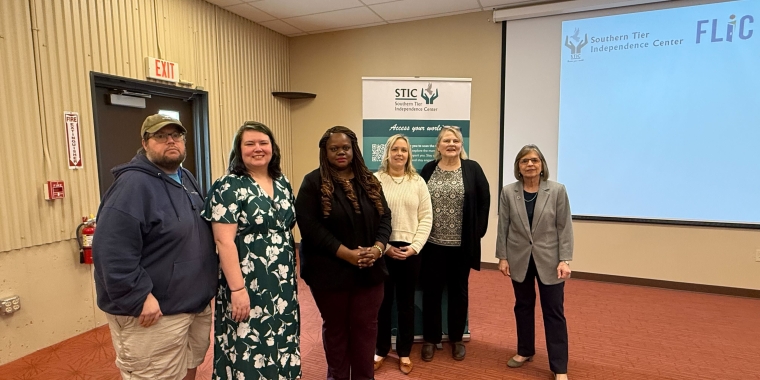
Senator Webb Introduces Legislation to Protect Cayuga Lake and the Drinking Water of 100,000 New Yorkers
November 7, 2023
-
ISSUE:
- Water Protection

(ITHACA, NY) New York Senator Lea Webb has introduced legislation (S7736) to protect Cayuga Lake and the drinking water it provides for 100,000 New Yorkers from potential environmental disasters due to salt mining. This legislation seeks to bolster the required protections by requiring, with any future permit renewals or the sale or transfer of the mine, an environmental impact statement as well as an updated reclamation plan along with appropriate financial security to ensure the communities relying on Cayuga Lake and its watershed for drinking water, leisure, and economic development are protected from potential harm.
In August, Cargill, Inc. began the process of putting up for sale the salt mine it has operated for more than five decades beneath Cayuga Lake in Lansing, Tompkins County, and on several thousand acres of land it leases from New York State. While the Mine Safety and Health Administration has been able to inspect the operation for worker safety, the DEC has not regularly inspected the mine for issues related to protecting the Cayuga Lake ecosystem. Now, after decades of mining by Cargill, Cayuga Lake is saltier than nearly all the other Finger Lakes.
Said Senator Lea Webb, “100,000 New Yorkers rely on Cayuga Lake for drinking water, including thousands of my constituents here in Tompkins County. Without intervention from the DEC, the lake could become permanently salinated, destroying 100,000 residents' source of drinking water and endangering our region's $3 billion recreational wine and agritourism economy, which employs 60,000 people. We must ensure worker safety and make sure that the communities relying on Cayuga Lake and its watershed for drinking water, leisure, and economic development are protected from potential harm.”
Said Senator Rachel May, "Protecting the precious fresh waters of the Finger Lakes is one of my top priorities. The emerging and continuing challenges facing each of these watersheds requires a new mindset that balances the needs of every community, business, and individual who relies on them. The increasing salinity of Cayuga Lake is a troubling trend, and the pending sale of the salt mines contributing to this trend is another opportunity for the state to revisit its approach to watershed governance. I am grateful to Senator Webb for crafting this important legislation and look forward to working with her to ensure its passage."
Said Assemblymember Anna Kelles, “Cayuga Lake is a critical resource for drinking water, tourism, and recreation in the region. Salt mining under the lake is inherently dangerous, and any mining accident could threaten the health of our water, wildlife and environment. Cargill has been mining at the Cayuga Salt Mine for years without a full, unbiased environmental impact review and now wants to sell the mine. This legislation will make environmental impact review mandatory. The health of over 100,000 New Yorkers who rely on the lake for drinking water is not worth risking for private corporate profits, particularly as we lack public, state-confirmed data on the status of the mines, including the geographic anomalies that have been mined to date. We must protect Cayuga Lake for future generations to come.”
"Cargill's salt mining has put the Finger Lakes at risk for too long, threatening 100,000 people's source of clean drinking water and our local $3 billion, 60,000-employee economic engine that relies on the health of the lakes. We're grateful to Senators Webb and May for introducing this legislation and doing their part to protect Cayuga Lake from ‘the worst company in the world,' and we urge the legislature to pass this bill to prevent Cargill from secretly skipping town and leaving our community holding the bag," said Stephanie Redmond, Environmental Researcher at CLEAN.
A copy of the legislation is available here.
Background:
The New York State public lands law authorizes the New York State Office of General Services (OGS) to grant the use of state-owned lands for mining purposes, including those lands found beneath lakes. Since the mid 1970s, OGS has provided consent orders to Cargill to allow for salt mining under Cayuga Lake. The most recent consent order in 2019 provided that the grantee, Cargill, would be able to provide notice to OGS and then extend the consent order for ten years. This allowance for the continued operation of the Cayuga Salt Mine beneath the lake comes without the performance of an environmental impact statement or environmental quality review which falls under the purview of the New York State Department of Environmental Conservation that provides additional permitting through the Mined Land Reclamation Law that includes reclamation and closure requirements of mined lands.
Past civil lawsuits challenging the continuance of permits by the New York State Department of Environmental Conservation (DEC) have been dismissed. The assertions made through these lawsuits primarily revolved around the lack of DEC oversight or the requirement of an environmental impact statement on the mine and on an approved expansion in light of significant environmental issues with the Retsof salt mine in Livingston County. In 1994, the Restof Salt Mine began to flood and caused serious issues including ruined water, sinkholes and bridge damage. At that time it was determined that the cause was due to a seismic fault. It is important to note that a similar seismic fault is located along the Cayuga Salt Mine at the lake. The similarities of these two mines has the communities surrounding Cayuga lake and its watershed very concerned about the environmental and ecological risks that an accident or other seismic issue to the salt mine would cause to the lake.
Cayuga Lake and its watershed is the largest in the region spanning 7 counties, covering 860 square miles with more than 140 streams that flow into the lake. Cayuga Lake itself is surrounded by a multitude of communities and supports a tourist economy seeking the natural beauty of the lake and the opportunity to visit the many vineyards found along the Cayuga Lake Wine Trail. An accident within the salt mine below Cayuga Lake would have an immediate and severe impact on the communities along the lake and within the watershed.
###
Share this Article or Press Release
Newsroom
Go to Newsroom


